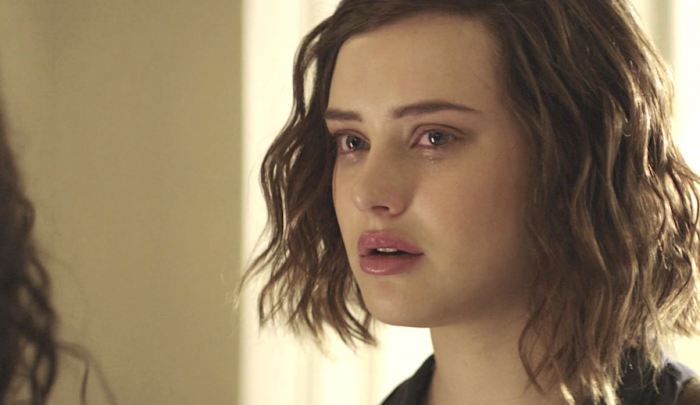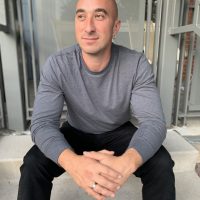Being a philosopher for such a long time has helped me understand the world from another perspective.
You would think my work involves a lot of love, appreciation, gratitude, and upliftment—but that’s actually not the case.
Throughout the week, I work with people, both online and in person, who struggle to live another day. I wake up to emails from people asking how they are going to get over the loss of their child. In other words, people ask me why they should even wake up anymore.
Some people are on the brink of ending it all, and they tell me about it. I’ve been hired by some people to make sure they survive the week in what seems to be a world of hurt, pain, and suffering. And, the interesting part about it all is that I agree.
The world is suffering. More accurately, the world contains suffering. You will suffer, I will go through hardship, we will all be tested as to whether we can sustain living in an unbearable world.
Why?
~
Best way to to keep your core pelvic and org@sm muscles strong and resilient? Here’s the coveted apparatus that makes this possible >>
~
Why would we go through this?
As I’ve talked with people over the last few years about pain and trauma, I’ve come to learn that we have no choice in the matter. The dragon of chaos is going to approach, the predictable world around us is going to change—and crumble—and the unknown, unpredictable, and anomaly-ridden future will present itself like some kind of ritualistic mating call.
The world, and all of its variety, allows the combination of both disaster and promise to occur. No one is controlling it from the sky, and there’s no great “mystery” to God’s will except to experience that which has been thrown together. It’s not random, though—and that’s what allows us to keep going.
Deep down, we know there is some sense of divinity, of success, and some possibility of survival—and even thriving.
There’s something inside us that knows right after the chaos, right after the unpredictable comes the world of explored territory. We start to see again, feel better again, sense that the world around us is becoming more manageable—again. This is what keeps us alive, because we are all heroes of our own story.
We all share a shared story. We all suffer, have suffered, or will suffer again. It’s coming, it has come, or it came. We are always each phase of the experiencer, the experience, and the experienced. Together, we share this common story, myth, and tale that keeps us from ending it all.
It’s the “what if” of our lives. It’s the “could be.”
I often ask my “worst” clients—those not sure if they will make it to tomorrow—to give me 5 minutes, then 10, then an hour. We slowly open up our vision and can accept a short future before a longer one. “Give me a day” eventually turns into, “I’ll see you next week.”
We survive the burden of our existence by making ourselves the explorer of that which surrounds us. Facing the chaos, the dread, and the hurt makes us the hero, because we have to in order to succeed. In order to face the dread and unpredictable nature of tomorrow, we have to become brave, courageous, and strong—and then we can see that “tomorrow” wasn’t so bad, and “next week” now seems possible.
I’ve come to learn that our actions create who we are. We play the role of the hero by facing pain courageously, or we face it as broken and shattered individuals and let it eat us alive.
Either way, the dragon of chaos remains always engulfing itself, recreating life, exploration, and chaos, only for us to face it again. Knowing this, we can arm ourselves with knowledge, courage, and bravery. We can face the knowable unknowable—and this time, we can choose to win.
Eventually, we learn that we never did it for ourselves. We went through the pain of suffering, the burden of living, and faced the ever-repeating dragon of consciousness in order to one day look someone in the eyes and say, “Can you make it to tomorrow?”
Ready to join?
Hey, thanks so much for reading! Elephant offers 1 article every month for free.
If you want more, grab a subscription for unlimited reads for $5/year (normally, it's $108/year, and the discount ends soon).
And clearly you appreciate mindfulness with a sense of humor and integrity! Why not join the Elephant community, become an Elephriend?
Your investment will help Elephant Journal invest in our editors and writers who promote your values to create the change you want to see in your world!
Already have an account? Log in.
Ready to join?
Hey, thanks so much for reading! Elephant offers 1 article every month for free.
If you want more, grab a subscription for unlimited reads for $5/year (normally, it's $108/year, and the discount ends soon).
And clearly you appreciate mindfulness with a sense of humor and integrity! Why not join the Elephant community, become an Elephriend?
Your investment will help Elephant Journal invest in our editors and writers who promote your values to create the change you want to see in your world!
Already have an account? Log in.

 Share on bsky
Share on bsky







Read 0 comments and reply